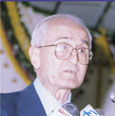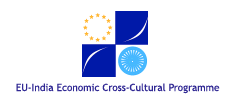
It is my pleasant duty to say a few words about CISM, the International Centre for Mechanical Sciences. CISM, a non-profit organisation, was founded in Udine, in 1968 with the purpose of promoting, through the organisation of advanced schools and seminars for researchers, the mechanical sciences and those disciplines, such as applied mathematics, computer science and system theory, which today interact more and more closely with all the applied sciences.
We may justifiably claim that, in the few years that have passed since its foundation, the Centre has become a highly respected international organisation, as it is confirmed by the affiliation of several European Academies, the lively co-operation with IUTA M (International Union for Theoretical and Applied Mechanics), the leading international association in the field of mechanics, and the strong support of UNESCO. In addition, the European Union has contributed to the financing of several courses.
The schools and seminars organised by CISM involve many fields of solid and fluid mechanics, material science, structural engineering, machine mechanics, soil and rock mechanics, earthquake engineering and the related disciplines of information theory, control, theory, system theory and computer sciences. Interdisciplinary subjects have included robotics, mechatronics, biomechanics and environmental problems. The lectures of several courses have been collected into volumes published by Springer Verlag (Vienna-New York). To date, more than 450 titles have been published.
As I have already mentioned, a defining characteristic of the Centre is its international dimension. The Scientific Council, which programmes the scientific activity of the Centre, is formed by scientists from fourteen different countries who examine and discuss proposals from a range of sources. The experts who lecture on each course form an international team.
The participants, too, at these courses – and this is a great satisfaction for us – are from a wide range of countries. For example, the 1999 courses involved 73 lecturers from 19 different countries. They were attended by 435 participants from 42 different countries.
The Centre’s contribution to a joint European-Indian co-operation project is therefore fully in line with the international character of CISM. Furthermore, the Centre is located in Udine, in a region in the north-east Italy bordering on Austria, the other European country directly involved in the project. The co-operation project also offers CISM the opportunity to organise courses outside Italy for the first time.
In 1999, three courses were organised here in the B.M. Birla Science Centre, on subjects in which the Italian mechanical industry has reached an advance level. The experts for these courses were from the Politecnico in Milan and the "La Sapienza" University in Rome, two of the leading academic institutions in Italy.
This new experience for CISM has proved to be very exciting because it involves not merely a transfer of knowledge among scientists but also the opportunity to establish direct contacts between the academic world in one country and the industrial world in the partner country.
I believe that this will be an important factor of mutual advantage in the economic development of Europe and India.

